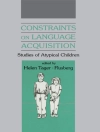Since 1989, Europe’s eastern rim has been in constant flux. This collection focuses on how political and economic transformations have triggered redefinitions of cultural identity. Using discursive modes of identity construction (deconstruction, reconstruction, reformulation, and invention) the book focuses on the creation of opposition to old and new ‘outsiders’ and ‘insiders’ in Europe. The linguistic study of discourse elements in connection with an exploration of the significance of metaphors in anchoring individual and collective identity is innovative and allows for a unique analysis of public discourse in Europe.
Mục lục
Introduction – Ljiljana Šarić, Stefan Manz, Andreas Musolff, and Ingrid Hudabiunigg
Part I
Chapter 1 Expellees, Counterfactualism, and Potatoes. Enlargement and Cross-National Debates in German-Polish Relations – Stefan Manz
Chapter 2 The Role of Metaphor in Shaping Cultural Stereotypes: A Case Study of French Public Discourse on European Union Enlargement – Steffen Buch and Uta Helfrich
Chapter 3 Metaphors in German and Lithuanian Discourse Concerning the Expansion of the European Union – Sandra Petraškaitė-Pabst Part II
Chapter 4 Domestic and Foreign Media Images of the Balkans – Ljiljana Šarić
Chapter 5 Naming Strategies and Neighboring Nations in the Croatian Media – Dubravka Kuna and Branko Kuna
Chapter 6 Mujahiddin in Our Midst: Bosnian Croats after the Wars of Succession – Daphne Winland
Chapter 7 Construction of Serbian and Montenegrin Identities through Layout and Photographs of Leading Politicians in Official Newspapers – Tatjana Radanović Felberg
Chapter 8 Krekism and the Construction of Slovenian National Identity: Newspaper Commentaries on Slovenia’s EU Integration – Andreja Vezovnik
Chapter 9 The Linguistic Image of the Balkans in the Polish Press in Discourse on European Union Expansion – Paweł Bąk
Chapter 10 The Eternal Outsider? Scenarios of Turkey’s Ambitions to Join the EU in the German Press – Andreas Musolff
Part III
Chapter 11 Contested Identities: Miroslav Krleža’s Two Europes vs. the Notion of Europe’s Edge – Ingrid Hudabiunigg
Chapter 12 Masculinity and the New Sensibility: Reading a Contemporary Montenegrin Novel – Biljana Jovanović Lauvstad
Chapter 13 The Rhetoric of Present Absence: Representing Jewishness in Post-Totalitarian Poland – Knut Andreas Grimstad Conclusion – Ljiljana Šarić
Giới thiệu về tác giả
Ingrid Hudabiunigg is Professor Emeritus of German as a foreign language and European studies at the Technical University of Chemnitz (Germany). She has published extensively on discursive identity construction.












